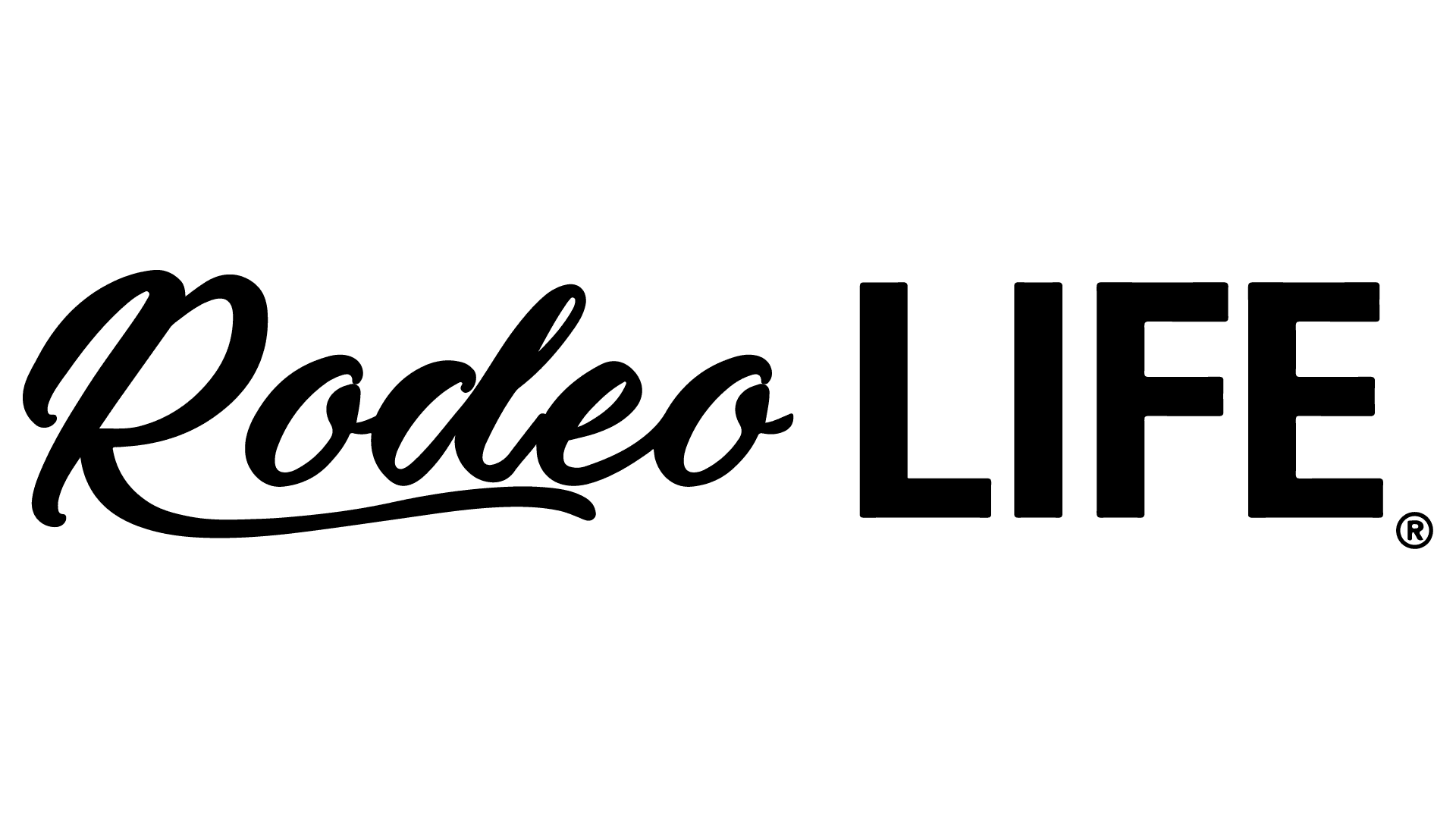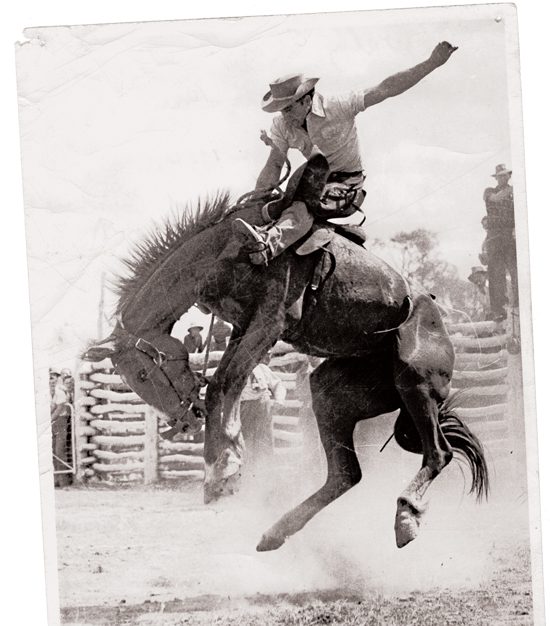Wally Woods was born in Victoria, Australia, the second youngest of four brothers. “When you’ve got four brothers, and I was the second youngest, I had to fend for myself,” said the 84-year-old Australian cowboy. “My father worked on a cattle/sheep property. My mother died when she was very young. When I was about five years old, we had a post office and I would deliver the mail bag three miles up the road five days a week on a horse.
Wally started competing in the steer riding when he was 14, winning the first one he entered. “I left school when I was about 11- there was no high school – I went traveling with a Wild West show, traveling all over riding bucking horses and doing all kinds of things in the show. You name it, I did it. We used to do two riding a bucking horse, one in the saddle and one behind, and we’d jump off.” He performed every night, and was part of each act. He traveled with the show for three years, and then switched to rodeo.
He worked in a spare car parts place and competed on the weekends. “In them days, in this country, money was hard to come by. We’d go to any buck jumping contest we could find (bronc riding).” He got his first big win in 1951, winning the Jubilee Championship of South Australia in the bronc riding. “I won a big cup and 100 pounds. From then on, at different times, one of me own brothers and I used to break in horses and a money earning contest, and travel around to different rodeos all over the country.” He entered every event. “There were five events in those days; bronc, bareback, steer riding, bull dogging, and roping. The roping was either calf roping or wild cow milking. Through the next ten years, I won four all around champions of the year, that’s the highest money winner over the five events.”
Wally was part of the Australian Rough Riders Association, which started in 1944. “They had a secretary, and a spokesman. It was just a membership that organized it all, and one secretary. From 1945 until 1959, then we formed a board of directors and all that,” he said. “They nominated me as the first president in 1959, and I was that until 1965, competing the whole time.” The ARRA is now the national governing body for professional rodeo competition in Australia, the oldest national rodeo organization in the world.
The first national finals was held in 1961. “It was an 8 round contest, so you’d ride eight of everything; eight saddle horses, eight bareback horses, eight bulls, bull dog eight steers, and rope eight head,” he explained. Wally, who is 5’6” and 11 stones (14 pounds = one stone) won the bull riding by three bulls, riding seven out of the eight. He won the high pot all around champion for the year, second in the bronc riding and placed in every event.
Wally met his wife, Lexi, at a rodeo in Victoria. “She was only a girl when I met her,” he said. “I waited seven years to marry her – my brother married her older sister.” Once they were married in 1958, she traveled all over the country with him. They have two children, a son, Guy, who is a cutting trainer in Texas, and a daughter, Lindy, two years and two days older than Guy.
They traveled around in a Ford 250, with his dogging horse in the back, and towing a caravan behind where they lived. Wally made a good living from rodeo. “In them days if you won 100 pounds (one pound = $2) in five weeks you were doing good; I won 500 pounds, which is good.
We used to buy petrol at about 2 shillings (.33 a gallon), now it’s $4.80 a gallon. We traveled anything up to 700 miles – there is some big distance between towns. From Victorian border to New South Wales is 600 miles.”
He continues to hold the record for winning three riding events in one day, and fourth in the bulldogging, at the Australian Championships. In 1958, he won the World Bronc Riding Championship, which included America, New Zealand, and other countries. “All told, I won 40 state Australian titles, and over the years, I’ve won 170 first places. We used to get a big sash when we won a contest, and I counted them out to see who many I won.”
He continued to compete well into the 1960s, and when he hung up his bull rope, he picked up a stopwatch and started judging. “I knocked off when I bought a transport business in Queensland, which I had started in Victoria. I transported cattle, sheep, horses, whatever livestock there was from one end of the country to the other, anywhere at all.” He still rodeoed around the arena for a little while, but he only went to a very few because he was too busy.
Wally is officially retired, but he still has some horses. “I breed them, since I give up rodeoing, I’ve managed two big quarter horse breeding properties and I’ve got a little place that we breed horses, Guy sent me a horse to breed here.”
He’s made several trips to the United States to visit his son and grandchildren, but since his four-way bypass a year and a half ago, he hasn’t done much traveling.
Wally has seen many changes to rodeo over the years. “It’s the same thing, but we used to ride in an Australian saddle. I was one of the very lucky ones that got to introduce the American saddle to the Australians. There’s a big difference. The
Australian saddle is an English saddle, but a lot smaller. It has a very low back, and very little, 1 ½ front on it. Once you got used to riding, it’s just like everything, you’re good at it or you’re not.”
The bareback riggin was completely different than today. “I used to make them and sell them. In 1956, a friend of mine that went to American brought me back a Dixon riggin. The ones they have now, you couldn’t even put them together. It was a straight head one – the original ones were like a bull rope, in fact, we used to use bull ropes riding horses.”
Bulldogging steers were much different back in his days of rodeoing too. “One of the best bull doggers this country had seen was 6’1, 15 stones (14 pounds per stone – 210 pounds) and I seen his feet not touch the ground for 100 yards after he caught the steer.
“All the years that I did it, I enjoyed it,” he said of rodeo. “There were quite a few of those fellows that rodeoed and traveled around and we became very good friends and it was also a way of life, it was a way of making money.”
Back When They Bucked with Wally Woods
17
previous post









